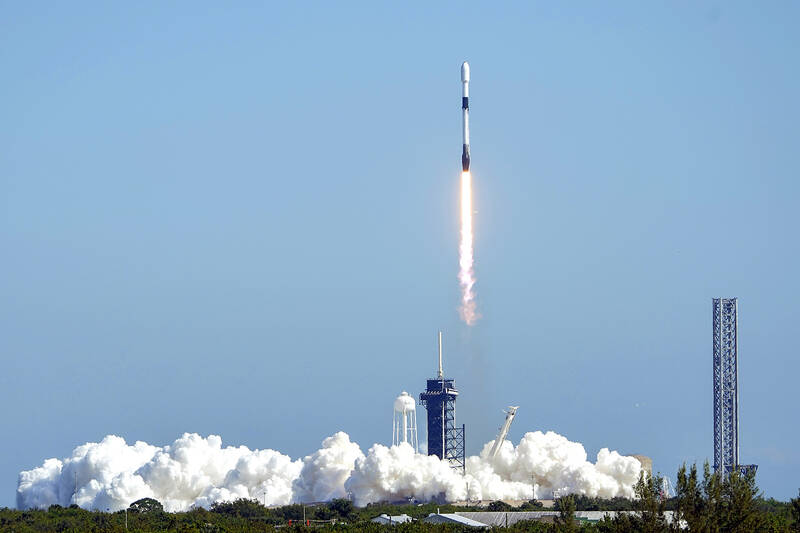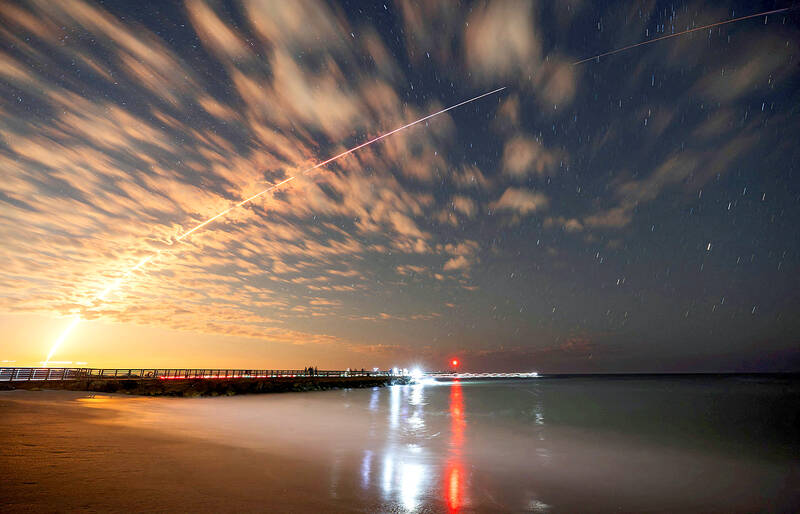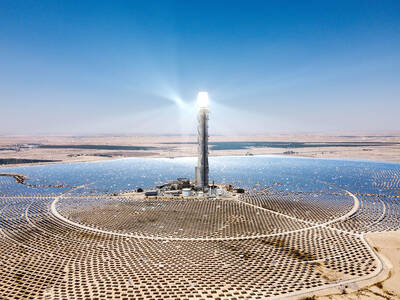Climate change is already causing all sorts of problems on Earth, but soon it will be making a mess in orbit around the planet too, a new study finds.
MIT researchers calculated that as global warming caused by burning of coal, oil, gas continues it may reduce the available space for satellites in low Earth orbit by anywhere from one-third to 82 percent by the end of the century, depending on how much carbon pollution is spewed. That’s because space will become more littered with debris as climate change lessens nature’s way of cleaning it up.
Part of the greenhouse effect that warms the air near Earth’s surface also cools the upper parts of the atmosphere where space starts and satellites zip around in low orbit, That cooling also makes the upper atmosphere less dense, which reduces the drag on the millions of pieces of human-made debris and satellites.

Photo: AP
That drag pulls space junk down to Earth, burning up on the way. But a cooler and less dense upper atmosphere means less space cleaning itself. That means that space gets more crowded, according to a study in Monday’s journal Nature Sustainability.
“We rely on the atmosphere to clean up our debris. There’s no other way to remove debris,” said study lead author Will Parker, an astrodynamics researcher at MIT. “It’s trash. It’s garbage. And there are millions of pieces of it.”
Circling Earth are millions of pieces of debris about 3 millimeters and larger — the width of two stacked pennies — and those collide with the energy of a bullet. There are tens of thousands of plum-sized pieces of space junk that hit with the power of a crashing bus, according to The Aerospace Corporation, which monitors orbital debris. That junk includes results of old space crashes and parts of rockets with most of it too small to be tracked.

Photo: Reuters
There are 11,905 satellites circling Earth — 7,356 in low orbit — according to the tracking website Orbiting Now. Satellites are critical for communications, navigation, weather forecasting and monitoring environmental and national security issues.
“There used to be this mantra that space is big. And so we can we can sort of not necessarily be good stewards of the environment because the environment is basically unlimited,” Parker said.
But a 2009 crash of two satellites created thousands of pieces of space junk. Also NASA measurements are showing measurable the reduction of drag, so scientists now realize that “the climate change component is really important,” Parker said.
The density at 400 kilometers above Earth is decreasing by about 2 percent a decade and is likely to get intensify as society pumps more greenhouse gas into the atmosphere, said Ingrid Cnossen, a space weather scientist at the British Antarctic Survey who was not part of the research.
Cnossen said in an e-mail that the new study makes “perfect sense” and is why scientists have to be aware of climate change’s orbital effects “so that appropriate measures can be taken to ensure its long-term sustainability.”

Google unveiled an artificial intelligence tool Wednesday that its scientists said would help unravel the mysteries of the human genome — and could one day lead to new treatments for diseases. The deep learning model AlphaGenome was hailed by outside researchers as a “breakthrough” that would let scientists study and even simulate the roots of difficult-to-treat genetic diseases. While the first complete map of the human genome in 2003 “gave us the book of life, reading it remained a challenge,” Pushmeet Kohli, vice president of research at Google DeepMind, told journalists. “We have the text,” he said, which is a sequence of

On a harsh winter afternoon last month, 2,000 protesters marched and chanted slogans such as “CCP out” and “Korea for Koreans” in Seoul’s popular Gangnam District. Participants — mostly students — wore caps printed with the Chinese characters for “exterminate communism” (滅共) and held banners reading “Heaven will destroy the Chinese Communist Party” (天滅中共). During the march, Park Jun-young, the leader of the protest organizer “Free University,” a conservative youth movement, who was on a hunger strike, collapsed after delivering a speech in sub-zero temperatures and was later hospitalized. Several protesters shaved their heads at the end of the demonstration. A

In August of 1949 American journalist Darrell Berrigan toured occupied Formosa and on Aug. 13 published “Should We Grab Formosa?” in the Saturday Evening Post. Berrigan, cataloguing the numerous horrors of corruption and looting the occupying Republic of China (ROC) was inflicting on the locals, advocated outright annexation of Taiwan by the US. He contended the islanders would welcome that. Berrigan also observed that the islanders were planning another revolt, and wrote of their “island nationalism.” The US position on Taiwan was well known there, and islanders, he said, had told him of US official statements that Taiwan had not

We have reached the point where, on any given day, it has become shocking if nothing shocking is happening in the news. This is especially true of Taiwan, which is in the crosshairs of the Chinese Communist Party (CCP), uniquely vulnerable to events happening in the US and Japan and where domestic politics has turned toxic and self-destructive. There are big forces at play far beyond our ability to control them. Feelings of helplessness are no joke and can lead to serious health issues. It should come as no surprise that a Strategic Market Research report is predicting a Compound